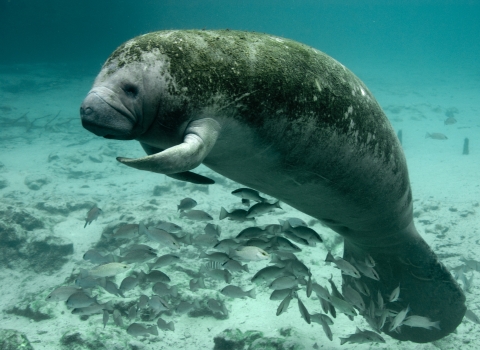WASHINGTON – After careful consideration, Secretary of the Interior David Bernhardt has directed the U.S. Fish and Wildlife Service (Service) to temporarily suspend the collection of all entrance fees at national wildlife refuges until further notice. Almost 500 refuges are already open to the public.
“I’ve directed the U.S. Fish and Wildlife Service to waive entrance fees at national wildlife refuges that remain open. This small step makes it a little easier for the American public to enjoy the outdoors at these incredible places,” said Secretary Bernhardt. “Our vast public lands that are overseen by the Department offer special outdoor experiences to recreate, embrace nature and implement some social distancing,”
States and municipalities have implemented similar fee waivers at outdoor sites in an effort to support social distancing.
Outdoor spaces remain open to the public at most refuges where it is currently possible to adhere to public health guidance. Many facilities such as visitor centers, however, will be closed. Please check your local refuge’s web page before you visit.
“The health of our visitors is our number one priority,” said Service Director Aurelia Skipwith. “When CDC guidance is followed, a national wildlife refuge national wildlife refuge
A national wildlife refuge is typically a contiguous area of land and water managed by the U.S. Fish and Wildlife Service for the conservation and, where appropriate, restoration of fish, wildlife and plant resources and their habitats for the benefit of present and future generations of Americans.
Learn more about national wildlife refuge can be the perfect antidote to cabin fever and a boon to our mental wellbeing during this unprecedented time.”
The Department and the Service urge visitors to do their part when visiting a refuge or hatchery to follow CDC guidance by maintaining a safe distance between yourself and other people; washing your hands often with soap and water for at least 20 seconds; avoiding touching your eyes, nose and mouth; covering your mouth and nose when you cough or sneeze; and most importantly, staying home if you feel sick.
Specifically, the CDC recommends high-risk populations, such as the elderly and people with underlying conditions, take extra precautions to be best protected against the spread of coronavirus.


